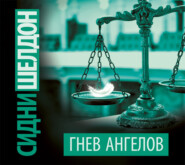По всем вопросам обращайтесь на: info@litportal.ru
(©) 2003-2025.
✖
Sidney Sheldon Untitled Book 2
Автор
Год написания книги
2019
Настройки чтения
Размер шрифта
Высота строк
Поля
Chapter Twenty-Three (#litres_trial_promo)
Chapter Twenty-Four (#litres_trial_promo)
Chapter Twenty-Five (#litres_trial_promo)
Chapter Twenty-Six (#litres_trial_promo)
Part Three (#litres_trial_promo)
Chapter Twenty-Seven (#litres_trial_promo)
Chapter Twenty-Eight (#litres_trial_promo)
Chapter Twenty-Nine (#litres_trial_promo)
Chapter Thirty (#litres_trial_promo)
Acknowledgments (#litres_trial_promo)
Keep Reading … (#litres_trial_promo)
About the Author (#litres_trial_promo)
Also by Sidney Sheldon (#litres_trial_promo)
About the Publisher (#litres_trial_promo)
PROLOGUE (#ulink_eda59dd2-80da-5bb0-8d08-d5cb8aa616c3)
Outside Athens, Greece
From the terrace of his elegant, whitewashed villa, former president Dimitri Mantzaris gazed out across Vouliagmeni beach to the clear blue waters of the Mediterranean Sea. He was an old man now and vastly fat, gorging himself daily on cheese and wine and baklava, the sweet, honeyed treats he’d always loved but had resisted as a younger man, back when his greed was at war with his vanity. At eighty years old, that war was over. The last vestiges of his good looks were long gone now, along with his political career. All the urges that had once driven and defined him – his naked lust for power, his insatiable sexual drive, his legendary avarice – had crumbled to dust, like the walls of the Parthenon. Eating was Dimitri Mantzaris’s last remaining pleasure of the flesh, and he indulged it without restraint.
But not today.
Today, for the first time in decades, Dimitri Mantzaris had no appetite.
Stavros Alexandris, his former Minister of the Interior and close friend, had brought him the picture this morning, on the third page of I Avgi, Greece’s top-selling daily newspaper.
‘I couldn’t believe it when I saw it.’ Stavros Alexandris’s hands were shaking. A sprightly sixty, and as wirily thin as his former boss was obscenely fat, Alexandris had a reputation for both ruthlessness and calm. At this moment, however, the latter quality had deserted him. ‘You don’t think …?
‘She’s still alive …?’ Mantzaris finished for him. God I hope so.
Athena Petridis. His nemesis. His conspirator. His muse. His angel. His betrayer. Except Athena had never been ‘his’. Athena Petridis had never been anyone’s, not even her husband’s, the truly evil Spyros Petridis. Like her immortal namesake on Mount Olympus, Athena had condescended from time to time to meddle in the affairs of men. But only when it pleased her, and only ever for her own ends.
Dimitri Mantzaris had been president, the most powerful man in Greece, at the time of their affair. And yet not for one day, not for one moment, had he held the upper hand in their relationship. Athena Petridis had owned him the way other, lesser women might own a dog. She still owned him. Even though she and her husband had been dead for twelve years.
Mantzaris looked at the picture again. It showed a tragic but sadly all-too-familiar image of a drowned child, a little boy this time, washed up on the beach at Lesbos. With hopelessly overcrowded boats leaving Libya every day, Greeks were becoming indifferent to the relentless death toll of the migrants. In many places, in fact, attitudes had swung right through indifference, to anger and resentment. Why did these people keep coming? Why did they put their own children at such appalling risk? Didn’t they know that Greece could barely afford to feed her own people, let alone open her doors to thousands of foreigners?
Dimitri Mantzaris did not share these views. The pictures still moved him. He was not, despite what many believed, a man without a heart. Yet it was not the dead boy that stirred such profound emotion within him now. It was the insignia tattooed on his heel, like a slave brand. The ancient Greek letter ‘L’. To scholars, this was the sign of the Spartan warrior, emblazoned on their shields in tribute to their home state of Laconia. But to Dimitri Mantzaris, along with many of the world leaders of his generation, the sign had a very different meaning. It was the secret, personal signature of Spyros Petridis, an illiterate peasant from Lagonissi who also happened to be both Athena’s husband and the most successful organized crime boss since Carlo Gambino.
‘It must be a hoax,’ Stavros Alexandris babbled nervously.
Dimitri Mantzaris nodded.
‘Or a coincidence.’
‘Yes.’
‘It can’t be her.’
‘No.’
‘She’s dead. They’re both dead.’
‘Exactly.’
‘Even so, I think Daphne and I might get away for a while. Out of the country. Perhaps to Chile? Just until things die down. We have friends there …’
Alexandris left, and Dimitri Mantzaris lumbered out to the terrace and sank down into his favorite chair. He knew he would never see Stavros again. The mark on that child’s heel was no coincidence and they both knew it. It was a message. A message only one person would have dared to send.
Closing his eyes, Dimitri Mantzaris let the memories wash over him. Athena’s soft skin, her musky scent, her deep laugh. With anguish he recalled the cloying desperation of her heavenly body, built for sex the way a Ferrari was built for speed.
‘Athena …’
The word hung on his lips.
Mantzaris had friends too, people who owed him, who could help him disappear before it was too late. But he was too old to run.
He would stay here and wait for Athena to come for him.
It would be wonderful to see her face again. Even if just for a moment, before she put a bullet in his brain.
Osaka, Japan
It wasn’t until two days later that Professor Noriko Adachi saw the picture. The tattoo on the dead child’s foot filled the screen on her office computer like cancer on an X-ray. Awful. Disgusting. Yet Japan’s most famous living literary scholar couldn’t stop herself from looking at it.
No sooner had charity workers on the beach noticed the unusual ‘L’ sign than theories began abounding on the web as to what it meant. Most were laughably wide of the mark. One or two came closer to the truth, more by luck than judgment in Professor Adachi’s opinion, pointing the finger at ‘people-traffickers’. But no one had yet said the word ‘Petridis’.
Most people still don’t know, Professor Adachi thought bitterly. And those who do are too cowardly to speak out.
Lovingly, she picked up the gilt-framed photograph in pride of place on her desk and traced a finger over the glass. Her only son, Kiko, was standing outside his dorm room in America, beaming with pride in his UCLA T-shirt. Above him, the dazzling California sky shone cartoon-blue. Fifteen years ago next week. What a perfect day it had been, so full of hope and promise.
A year after that picture was taken, Kiko Adachi was dead. The hardworking, diligent student and athlete, and love of his parents’ life, had fatally overdosed on a new, lethally strong brand of cocaine, recognizable by the ‘L’ insignia on the baggies, specially shipped onto US college campuses by Spyros Petridis.
A year after that, Noriko and her husband Izumi, Kiko’s father, had divorced. Izumi complained that his wife had become obsessed with Petridis and his glamorous wife Athena, by that time a UN special ambassador and world-renowned philanthropist whose charisma and beauty had so dazzled the world’s most powerful men that her husband operated their empire with near impunity.
Izumi was right. Noriko was obsessed. She wrote countless articles about the Petridises’ criminal activity, which no one had the balls to publish. She even penned a novel about her son’s death, with the names and identities thinly disguised, but no one would print that either, despite the professor’s fame. After two and a half years of fruitless effort, it was the happiest day of Professor Noriko Adachi’s life when she woke up to the news that Spyros Petridis’s helicopter had gone down in a remote part of Utah, killing him and his wife instantly in a white-hot ball of flames. All that was left of Spyros Petridis had been a few charred bones, just enough to confirm a DNA match. As for Athena – Lady Macbeth – the heat was such that she’d been completely incinerated. Burned to dust. Erased.

















